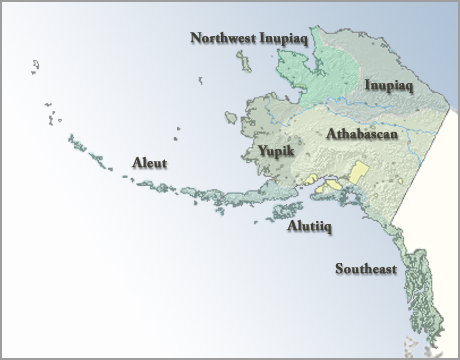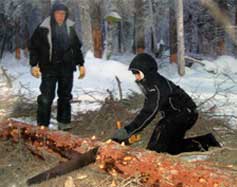Tribes: Alaska

Alaska Region
Indigenous peoples around the world have been encroached upon for centuries. Alaska and other far north regions have
been among the last to be colonized, shielded from invaders by the harsh and extreme environment. Today, Alaska Native
society is clashing with outside society in a more passive way, though the impacts on them could be as severe, if
not more so. Alaska's vast landscape is changing at a rapid pace, due in part to climate change. Climate change will
impact the world's entire population; however, Alaskans will be among the first populations to feel the consequences
of humanity's actions.
Rural Alaskans are inextricably bound to the land and sea, depending on the natural world for their survival and
interacting with it to sustain their culture and spirituality. If one does not respect what Earth provides and give
back regularly to preserve the land for the next seven generations, one does not survive. Parents, grandparents,
and extended family instill these cultural values in Native Alaskan youth, teaching them how to hunt, fish, gather
and relate to the greater forces, as has been taught through generations in the unforgiving northern Arctic
environment.
